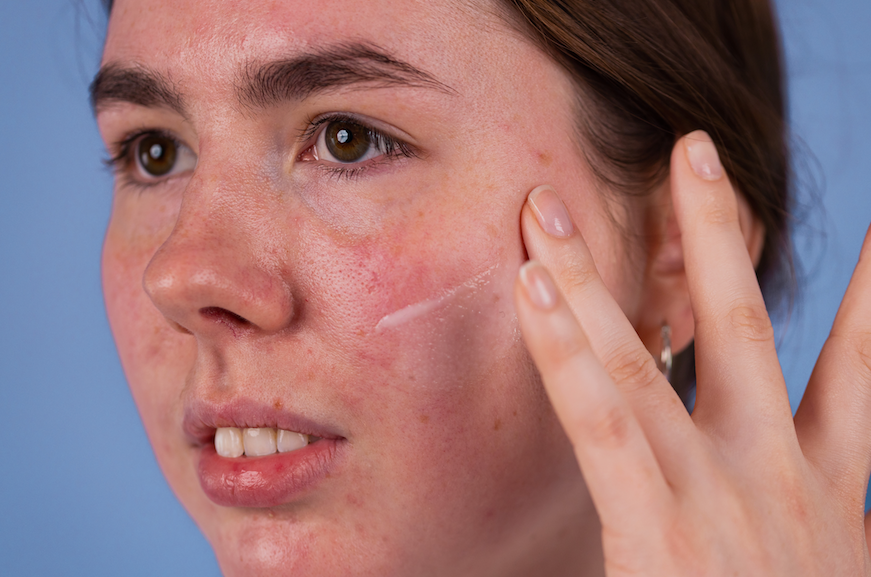A Comprehensive Guide to your Skin Type

In order to truly understand our skin, it is crucial to understand that each individual has a unique skin type, influenced by genetic, environmental, and lifestyle factors.
Normal Skin

Normal skin is characterized by balanced oil production, few imperfections, and a smooth texture. If you have normal skin, consider yourself very lucky! Your skin typically looks healthy and flawless with minimal effort.
Dry Skin

Dry skin lacks sufficient moisture, often feeling tight, rough, or flaky. It may appear dull and prone to fine lines and wrinkles. Those with dry skin may experience discomfort, especially in harsh weather conditions.
NB : Dry skin is a type characterized by a lack of oil production. On the other hand, dehydrated skin is a condition where the skin lacks water, leading to tightness and dullness. Identifying whether your skin is dry or dehydrated helps in selecting the appropriate skincare products and treatments for optimal skin health.
Oily Skin

Oily skin tends to produce excess sebum, leading to a shiny complexion and enlarged pores. Individuals with oily skin may be more prone to acne and blackheads due to clogged pores. Managing oiliness while maintaining hydration is key for this skin type.
Combination Skin

Combination skin presents a mix of dry and oily areas, with the T-zone (forehead, nose, and chin) typically being oilier than the cheeks. Balancing the needs of both dry and oily areas can pose a challenge, requiring a customized approach to skincare.
Sensitive Skin

Sensitive skin is prone to irritation, redness, and allergic reactions, often triggered by certain ingredients, environmental factors, or harsh skincare products. Those with sensitive skin must choose gentle, fragrance-free products to avoid aggravating their skin.
How to identify my skin type ?
To determine your skin type, start by cleansing your face with a gentle cleanser to remove any makeup, dirt, or impurities. Pat your skin dry and wait for about an hour, it will allow your skin to return to its natural state.
- Normal Skin: Your skin will feel comfortable and balanced, with no noticeable oiliness or dryness.
- Dry Skin: Your skin may feel tight, rough, or flaky, especially in areas like the cheeks and forehead.
- Oily Skin: Your skin will appear shiny, particularly in the T-zone, and may feel greasy to the touch.
- Combination Skin: You may notice oiliness in the T-zone while the cheeks feel normal or dry.
- Sensitive Skin: Your skin may react with redness, itching, or irritation to certain products or environmental factors.
Once you've identified your skin type, it's essential to select skincare products and ingredients that address your specific concerns and needs. Whether you're combating dryness, controlling oiliness, or soothing sensitivity, there are formulations designed to target each skin type effectively.
NB : It's crucial not to mix up skin concerns such as acne or blackheads for example with skin types. While oily skin is more prone to acne due to increased sebum production, acne is a specific condition that can affect individuals with various skin types. For instance, someone may experience hormonal acne while having a dry or combination skin.

